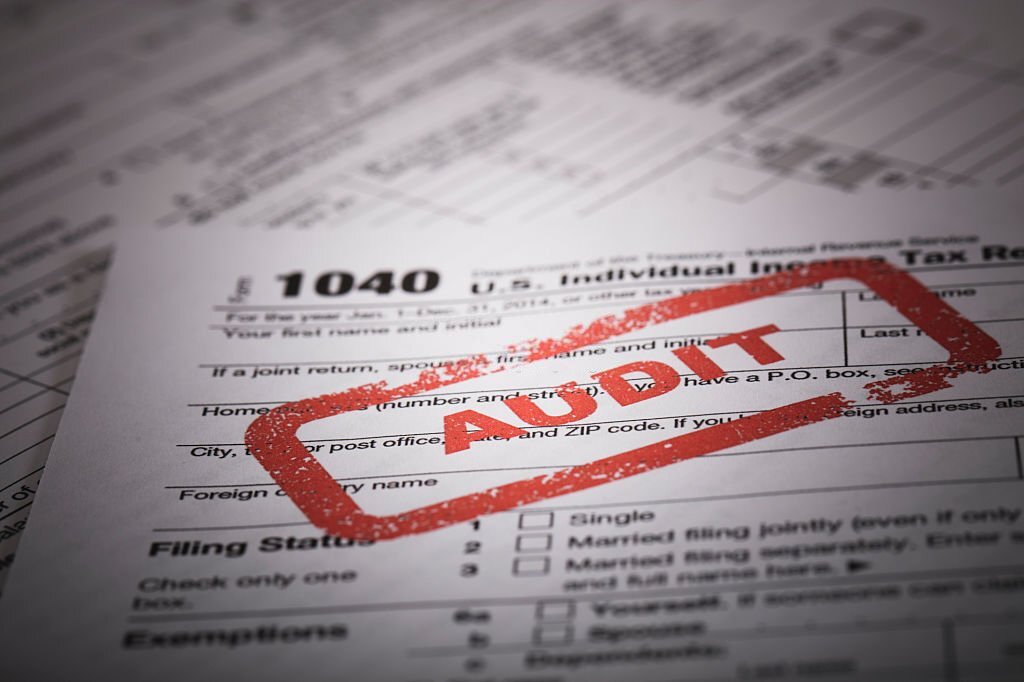Taxes
You Shouldn’t Fear an IRS Audit if You Do Your Homework
If you document everything—audits are mostly about seeking documentation—there’s no reason to freak out if the IRS audits you.
Jun. 11, 2024

By Matthew Chancey, CFP, Kiplinger Consumer News Service (TNS)
Audit. The word strikes fear in many people. They dread the scrutiny, penalties and other unfortunate outcomes when the IRS questions the accuracy or the veracity of their tax return.
The IRS recently announced its plans to significantly ramp up tax audits on the wealthiest taxpayers, large corporations and large, complex partnerships for tax year 2026. Audit rates will increase by more than 50% for those with total positive income of more than $10 million. That news is sure to trigger anxiety in some high-net-worth individuals.
But if you’re in that bracket, or any tax bracket for that matter, let me set your anxieties at ease. An IRS audit is more of an exercise that seeks documentation; it’s not necessarily an accusatory event.
You learned this in grade school
I like to think of an IRS audit as something that is similar to what goes on in classrooms. Remember when you had to take math tests in elementary school? Maybe you had to answer a quiz with 10 multiplication problems. You did them all in your head and turned in your exam.
The teacher looked at your answers, which were all correct. But she noticed you didn’t show your work. She couldn’t tell by merely checking your answers that you knew how to arrive at the solutions.
So she handed the exam back to you and said, “Can you show me how you solved these problems? Can I see the process you used to get these answers?”
When you get audited, the IRS wants to know how you got the answers you did.
Taxpayers should be able to explain and justify their tax positions and investments to the IRS. Proper documentation is crucial, and I advise clients to prioritize it. I tell them to make a note of what they do and when they do it. This way, they have their homework in place and ready to show the IRS if it’s needed. Start a file or folder that includes all the forms and documents that explain your financial actions.
The documentation should answer these questions:
- What did you do?
- How did you do it?
- Why did you do it?
- What documents do you have that support what you did?
Let’s say you’re a real estate professional. You need to have 750 hours a year of aggregated time in real estate activities to qualify as a real estate professional in the eyes of the IRS. Suppose the IRS decides to audit your return from five years ago. They ask for documentation to show that you spent 750 hours on real estate-related tasks during the year in question.
Do you have documentation that shows this? Maybe you spent an average of 40 hours a week at an office as a broker. You might have had regular training meetings with your staff. Your calendar may have been full of appointments. All those activities could serve as the evidence you need.
The approach for business owners is slightly different. These individuals are inherently risk-takers. Everything related to their business carries risk. They hope that by making purchases, investing in a workforce, targeting new markets or expanding their geographic reach, they’ll receive a return. Their goal is to generate revenue that exceeds the costs involved.
Translating this to tax planning, then, I ask, “Why would a business owner be any different when they’re looking at an advanced planning strategy?” They aim to take a calculated risk and say, “Can I document this position that gives me the ability to make an argument to the IRS on why this position works? If I were to get audited, do I have enough documentation to support it?”
Red flags that could trigger an audit
Most of the causes behind an audit stem from an error or omission. In some cases, not all the 1099s or K-1s get turned in. Illegal practices, such as fabricating documents, taking deductions that aren’t allowed or making up different types of expenses that didn’t occur, can lead to trouble.
Here are some situations that could draw the IRS’ attention:
Certain transactions. The IRS has identified the transactions on this list as potentially abusive. They are the same or substantially similar to those that the IRS has determined to be tax-avoidance transactions.
Dirty Dozen. The Dirty Dozen list, published annually by the IRS, highlights common tax scams and abusive transactions.
Active vs. passive losses. Many taxpayers incorrectly use passive losses to offset active income (like wages). The IRS considers a passive business or trade activity one in which you don’t materially participate—i.e., you’re not involved in the operation on a regular or substantial basis. Popular passive activities include rental real estate, equipment leasing, limited partnerships and limited liability companies (LLCs). Passive losses can be written off only against passive gains.
Partnerships. The IRS is focused on partnerships that don’t pay corporate income taxes. Tiered partnerships, or those that own another one, can provide a way of hiding income.
Keep your transactions and actions well-documented so that you’re prepared if you get audited. In that event, you’ll be ready to show your homework. If you don’t want to have to represent yourself, there are attorneys and CPAs who specialize in tax-controversy work.
ABOUT THE AUTHOR:
Matthew Chancey is a Certified Financial Planner and the author of Tax Alpha Solutions: Effective Tax Management Strategies For High-Net-Worth Investors.
_______
All contents copyright 2024 The Kiplinger Washington Editors Inc. Distributed by Tribune Content Agency LLC.
